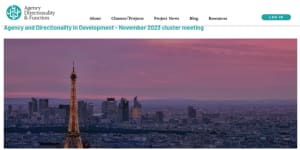
Talks of 2023 in english
-
-
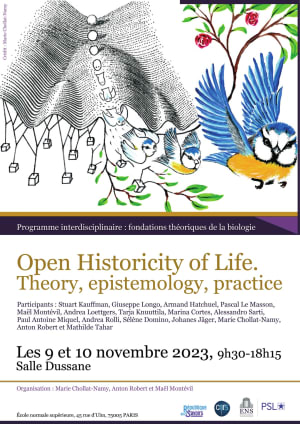
Mathematical spaces and biological objects
-

Open historicity of life. Theory, epistemology, practice
In the last decade, the notion that new possibilities appear over time in biological phenomena has received renewed and growing attention. Kauffman approaches it as the adjacent possible, Sarti and Citti as heterogenesis, and Longo and Montévil as symmetry change and specific objects. Accordingly, there is a growing understanding that this notion is a significant shift and challenge in the way to do science. However, there has yet to be a systematic effort to bring together the different perspectives on this question in biology and in other fields confronted with it. In this conference, we intend to create bridges between the different perspectives that have been developed, mostly independently, on the question of changing possibility spaces in biology.
-
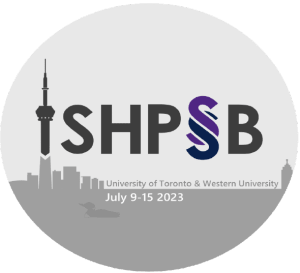
Historicity and theory
This Diverse Format Session will discuss some biological principles and notions that, we submit, should be integrated into the theoretical concepts of biology. Overall, these notions delineate an organism-centered biological science, by shifting the focus to the wholes rather than their parts. In particular, the session will examine how the adoption of these principles and notions fundamentally challenges the received view on biological explanation.
The first notion is purposiveness. There is recent literature suggesting that biological organization can be interpreted as self-determining, and thereby intrinsically purposive (Mossio & Bich, 2017). Accepting the intrinsic purposiveness notion implies accepting a circular determination between the parts and the whole and thus a challenge to a mechanistic explanation of biological organization. The second notion is variation. In some recent studies (Montévil et al., 2016), biological variation is understood in terms of the emergence of changes that cannot be prestated. As such, biological variation challenges the very possibility of generalized formal models in biology. The third notion (Soto et al, 2016), is the biological default state according to which cells constantly grow, change shape, proliferate, and move. Because of this default state, the explanation of biological phenomena involving motility and proliferation is reversed, to the extent that what is to be accounted for is their absence (quiescence). The fourth notion is agency, which designates the capacity of organisms to behave in interaction with the environment and other organisms in a purposeful, normative, and functional way. Among other things, the conception of organisms as agents radically modifies evolutionary explanations (Jäger, 2023), insofar as agents are not only the result of selective processes, but they also actively shape selective processes.
The session will consist of four short presentations (15 minutes each, maximum), followed by a discussion of 30 minutes at least, in which we will explore the capacity of these concepts to advance biological explanation, as well as their (deep) conceptual connections. -
Biology lies at an epistemological interface
-
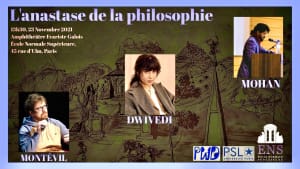
Anastase de la philosophie
-

On biological novelties
-
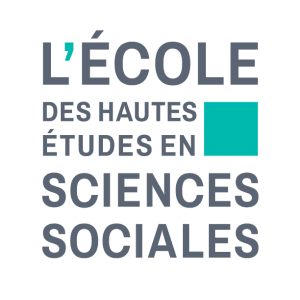
Architectonique théorique en biologie et applications
Si la physique, notamment la mécanique classique, a largement été mobilisée comme modèle de la compréhension théorique de la nature, la biologie a dans une certaine mesure, réussi à s'en détacher avec la théorie de l'évolution, une théorie où l'historicité est première. Néanmoins, cette innovation épistémologique et méthodologique n'est pas miscible avec la méthode de théorisation physique et il s'ensuit une étrange cohabitation dont les enjeux sont rarement traités. Nous proposerons des directions pour repenser la théorisation en biologie en insistant sur le concept de nouveau possible. Nous montrerons aussi que ce travail permet de mieux comprendre des phénomènes biologiques cruciaux : la disruption des organisations biologique dans l'Anthropocène.




